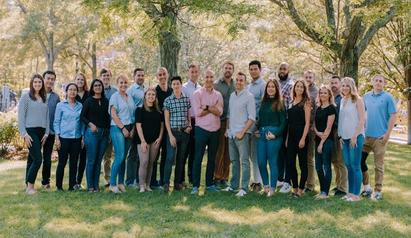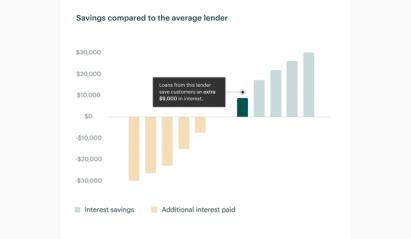Q&A: How Boston City Councilor Josh Zakim Sees Boston’s Housing Market
Written by:
Patrick Boyaggi
Patrick Boyaggi
CEO an Co-Founder
Patrick is the Co-Founder and CEO of Own Up. He has a wealth of experience and knowledge as a mortgage executive.
See full bio

Josh Zakim plays a wide variety of roles in Boston – from his work as an attorney, to his previous chairmanship of the Boston City Council’s Committee on Housing & Community Development, to his candidacy for Secretary of State.
Councilor Zakim is laser-focused on empowering people in communities across Massachusetts to take ownership over their housing and neighborhoods. We caught up with Councilor Zakim recently to talk about the housing landscape in the city.
On his former role as chair of the Boston City Council Committee on Housing & Community Development:
One of the first things we did when I became chair was add “community development” to the committee’s name, because it’s not just about housing. It’s also about supporting neighborhoods – the people who live here and want to stay here.
As chair of this committee, we held a number of hearings on the broader impacts of short-term rentals like Airbnb. We also discussed co-op ownership as an underutilized tool in the battle for neighborhood stability and affordability. There are some limited equity co-ops in my district, and they’re great, effective, long-term options for home ownership access. Because there’s limited equity, a form of homeownership, people stay for the long-term. When they do sell, they are limited in the profit they are allowed to make, thereby keeping the unit more “affordable.”
On what co-ops are and why there aren’t more of them in Boston:
With a co-op, there’s the one owner, the co-operative, but all the residents own different shares. Many co-ops are created when longtime landlords sell a building, and the tenants get together and decide to buy the building and keep it as their home. When it works, it’s great.
They are fairly uncommon, and one of the biggest challenges we heard from folks in the co-op community was that it was difficult to get bank financing for co-ops. That doesn’t make sense to me, because the collateral is the same. But, for some reason, many banks and financial institutions have a problem underwriting loans for them.
One of the first hearings we convened was a hearing to ensure city departments were being as helpful as possible when it came to unusual home situations like co-ops. It turns out, the city departments were pretty on top of it, but financing was the biggest obstacle.
In New York City, co-ops are one of the most common forms of home ownership. Some are more expensive though, there are co-ops with $10 million apartments. But, it all depends on the governing documents of the co-op. Even if property values rise, you have limited equity, so you can’t necessarily sell an apartment for $1 million, even if it’s 50 years after you first bought it.
On some of the main housing issues the city of Boston is dealing with:
Safety and sanitary issues are still a concern. City services do a great job of ensuring people know the resources and can call 311 to have an inspector look at an apartment and determine whether the landlord is allowing an unsafe situation. We worked on that issue frequently during my first term, partly because I represent a lot of student neighborhoods. We’ve seen a number of landlords who are just not living up to their end of the bargain and we did have to take action in those instances. Those situations have improved, but it’s something we still need to keep an eye on. On Sept. 1 every year, we have thousands of students moving into apartments all across the city. My office, the universities, code enforcement, police and fire departments are out there ensuring kids and parents are aware of the resources available to them.
On any advice for new landlords to ensure their rental unit is up to code:
You can always have a private home inspector come in and take a look. It’s all about being responsive to your tenants. If someone says their plumbing is broken or the smoke detector is not working, take care of it. It’s not hard to make a lot of money in Boston as a good landlord, so there’s no excuse for folks who are not living up to their end of the bargain.
Curious about homeownership? We can help!
Get Started
On how attainable home ownership is for the average Bostonian:
We’re in a very hot market. In a way: It’s a sign that people want to be in Boston. However, there are serious drawbacks - it’s obviously very difficult to buy a home in the Boston area right now. People who are beginning their careers and lives here are struggling to take steps toward home ownership, and it’s challenging for people who have been here for decades and are having issues staying. It comes down to the city and state government. I’d say federal government here, too, but the federal government doesn’t seem to really care about helping people in communities like Boston anymore. Rental assistance and subsidized, affordable middle-income housing projects can be a huge help. The funds raised via the Community Preservation Act will also be an important tool.
On paths average Bostonians have to homeownership they might not know about:
The Boston Home Center offers first-time homebuyer classes and can help people get their finances in order. There’s also the Neighborhood Homes Initiative, a project that’s gotten smaller lots and parcels into the hands of developers that are creating more affordable homes for ownership or rental. We have to find a balance between getting more affordable rentals and also providing paths to ownership, and much of it depends on what’s being built. We have an inclusionary development policy in Boston, where if a developer is building a rental, a certain percentage of that construction has to be affordable. If they’re building condos, they have to include a certain percentage of affordable condos, too. It comes down to resources - we used to have a federal Department of Housing and Urban Development that offered a lot of subsidization. That’s not there anymore, so we’re going to have to get creative.


